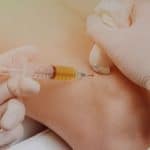Age Slower. Look Better. The evidence-based FoRMula for youthful, healthy skin
Aging is inevitable—accelerated aging is not. Skin aging is driven by collagen loss, oxidative stress, hormonal shifts, and chronic inflammation. The right nutrients—inside and on the skin—can slow the breakdown and restore function where it matters most.
Below are the top evidence-backed nutrients + products we use at FoRM to support skin integrity, elasticity, and repair.
1. Vitamin C + Antioxidants (Topical)
Why it matters:
Vitamin C is a non-negotiable for collagen production, the skin’s defenses (immune system + skin barrier) and protection against oxidative stress that accelerates aging. Pairing Vitamin C with other antioxidants enhances its impact.
What it does:
- Boosts collagen directly at the skin level
- Brightens skin tone and fades hyperpigmentation
- Neutralizes free radicals from UV and pollution to prevent accelerated aging
Favorite Product: Alto Advanced – Defense + Repair Serum (SkinBetter Science)
How to use: apply 1 pump after cleansing in the morning for daily defense against the elements + pollution. Follow with a moisturizer and mineral-based SPF.
2. Vitamin A (Topical)
Why it matters:
Vitamin A (retinoids) remains the gold standard topical ingredient for reversing visible and structural signs of aging. No other topical has more research behind it for collagen stimulation, increasing cell turnover and wrinkle reduction.
What it does:
- Speeds cell turnover and regeneration to improve texture + tone
- Reduces fine lines, wrinkles, and sun damage
- Improves acne by decreasing excess oil production + improve turnover of dead cells
- Increase blood vessels within the skin
Favorite Products: AlphaRet Overnight Cream (SkinBetter Science)
How to Use: apply 1 pump to face + neck every night after cleansing and before moisturizing.
3. Collagen Peptides (Oral)
Why it matters:
Collagen is the structural protein that keeps skin firm, plump, and resilient. After age 25, we lose ~1% per year—faster with stress, sun, or low protein intake.
What it does:
- Reduces fine lines and improves skin elasticity
- Strengthens skin, hair and nails
- Improves hydration and skin barrier function
How to Take: add 10–20 grams of collagen peptides to food or hot beverage daily.
Pro-tip: Look for Hydrolyzed collagen peptides (Type I & III for skin), sourced from grass-fed bovine or marine collagen
4. Omega-3s (oral)
Why it matters:
Chronic, low-grade inflammation accelerates skin aging. Omega-3s help offset the inflammatory process, known as “inflamm-aging.”
What it does:
- Reduces inflammation that breaks down collagen
- Improves skin moisture and barrier integrity
- Helps manage inflammatory skin conditions: eczema, acne, + rosacea
How to take: Cod Liver Oil (CLO): take 1-2 g of fish oil daily, in liquid or capsule form.
Pro-tip:
- CLO is the preferred fish oil supplement for skin as it naturally contains skin-loving Vitamins A, D + E.
- Quality matters – choose third-party tested oils to avoid rancidity (oxidized oils do more harm than good).
5. Estrogen (Topical)
Why it matters:
Estrogen is a major driver of skin thickness, collagen content, moisture retention, and wound healing. When levels drop (perimenopause/menopause), skin aging accelerates rapidly.
What it does:
- Increase collagen and skin elasticity
- Improve hydration and reduce crepiness
- Thicken skin + speed repair
Reduce wrinkles related to hormonal decline
How to use: apply a thin layer of prescription-grade, compounded estrogen face cream to face and neck at night, typically after retinoid (vitamin A product) and before moisturizer.
Pro-Tip: Topical estrogen is a medical therapy, not a DIY serum. It should be prescribed + monitored by a healthcare professional.
6. Probiotics (oral)
Why it matters:
Probiotics strengthen the “Skin-Gut Axis”, which in turn reduces inflammation, promotes skin hydration, balances the skin microbiome and fortifies the skin barrier from within.
What it does:
- Reduces systemic + skin inflammation to slow “inflammaging”
- Improves hydration and preventing transepidermal water loss (TEWL) by increasing ceramide production
- Balances the skin microbiome which can help address chronic skin conditions like acne and eczema.
How to take: 1 capsule daily of a multi-strain probiotic with a minimum of 10-20 billion CFUs.
Pro-tip: Look for probiotics that contain the following skin-specific strains: L, rhamnosus GG, L. plantarum, B. breve, L. reuteri, Streptococcus thermophilus
Age Slower. Look Better.
The best approach is to battle aging with an integrative strategy blending nutritional supplementation + targeted topicals with regenerative aesthetic procedures at FoRM Health.
Vitamin C and antioxidants defend and repair skin damage. Vitamin A promotes cellular renewal and combats wrinkles. Collagen rebuilds structure from within. Omega-3s and probiotics dial down inflammaging. And for women in midlife, topical estrogen is a game-changer for restoring firmness, thickness, and hydration.
To take control of the aging process, schedule a consultation at FoRM Health in Portland, Oregon.
Blog authored by Dr. Kai Herman ND – Functional Medicine + Regenerative Aesthetic Specialist
Citations:
Al-Niaimi F, Chiang NYZ. Topical Vitamin C and the Skin: Mechanisms of Action and Clinical Applications. J Clin Aesthet Dermatol. 2017 Jul;10(7):14-17. Epub 2017 Jul 1. PMID: 29104718; PMCID: PMC5605218.
McDaniel DH, Mazur C, Wortzman MS, Nelson DB. Efficacy and tolerability of a double-conjugated retinoid cream vs 1.0% retinol cream or 0.025% tretinoin cream in subjects with mild to severe photoaging. J Cosmet Dermatol. 2017 Dec;16(4):542-548. doi: 10.1111/jocd.12381. Epub 2017 Aug 1. PMID: 28762645.
Draelos ZD, McDaniel DH, Yoelin S, Pot S, Sotir O, Nelson DB. Evaluation of a New, Advanced Antioxidant Containing Topical Allyl Pyrroloquinoline Quinone: Analysis of Antioxidant Properties and Visible Effects in Subjects with Facial Photodamage. J Clin Aesthet Dermatol. 2023 Apr;16(4):53-59. PMID: 37077928; PMCID: PMC10110291.
Milosheska D, Roškar R. Use of Retinoids in Topical Antiaging Treatments: A Focused Review of Clinical Evidence for Conventional and Nanoformulations. Adv Ther. 2022 Dec;39(12):5351-5375. doi: 10.1007/s12325-022-02319-7. Epub 2022 Oct 11. PMID: 36220974; PMCID: PMC9618501.
Januszewski J, Forma A, Zembala J, Flieger M, Tyczyńska M, Dring JC, Dudek I, Świątek K, Baj J. Nutritional Supplements for Skin Health-A Review of What Should Be Chosen and Why. Medicina (Kaunas). 2023 Dec 29;60(1):68. doi: 10.3390/medicina60010068. PMID: 38256329; PMCID: PMC10820017.
Gao T, Wang X, Li Y, Ren F. The Role of Probiotics in Skin Health and Related Gut-Skin Axis: A Review. Nutrients. 2023 Jul 13;15(14):3123. doi: 10.3390/nu15143123. PMID: 37513540; PMCID: PMC10385652.
Teng Y, Huang Y, Danfeng X, Tao X, Fan Y. The Role of Probiotics in Skin Photoaging and Related Mechanisms: A Review. Clin Cosmet Investig Dermatol. 2022 Nov 16;15:2455-2464. doi: 10.2147/CCID.S388954. PMID: 36420112; PMCID: PMC9677255.
Pu SY, Huang YL, Pu CM, Kang YN, Hoang KD, Chen KH, Chen C. Effects of Oral Collagen for Skin Anti-Aging: A Systematic Review and Meta-Analysis. Nutrients. 2023 Apr 26;15(9):2080. doi: 10.3390/nu15092080. PMID: 37432180; PMCID: PMC10180699.
Schmidt JB, Binder M, Demschik G, Bieglmayer C, Reiner A. Treatment of skin aging with topical estrogens. Int J Dermatol. 1996 Sep;35(9):669-74. doi: 10.1111/j.1365-4362.1996.tb03701.x. PMID: 8876303.
Schmidt JB, Binder M, Macheiner W, Kainz C, Gitsch G, Bieglmayer C. Treatment of skin ageing symptoms in perimenopausal females with estrogen compounds. A pilot study. Maturitas. 1994 Nov;20(1):25-30. doi: 10.1016/0378-5122(94)90097-3. PMID: 7877517.
Viscomi B, Muniz M, Sattler S. Managing Menopausal Skin Changes: A Narrative Review of Skin Quality Changes, Their Aesthetic Impact, and the Actual Role of Hormone Replacement Therapy in Improvement. J Cosmet Dermatol. 2025 Sep;24 Suppl 4(Suppl 4):e70393. doi: 10.1111/jocd.70393. PMID: 40847905; PMCID: PMC12374573.






